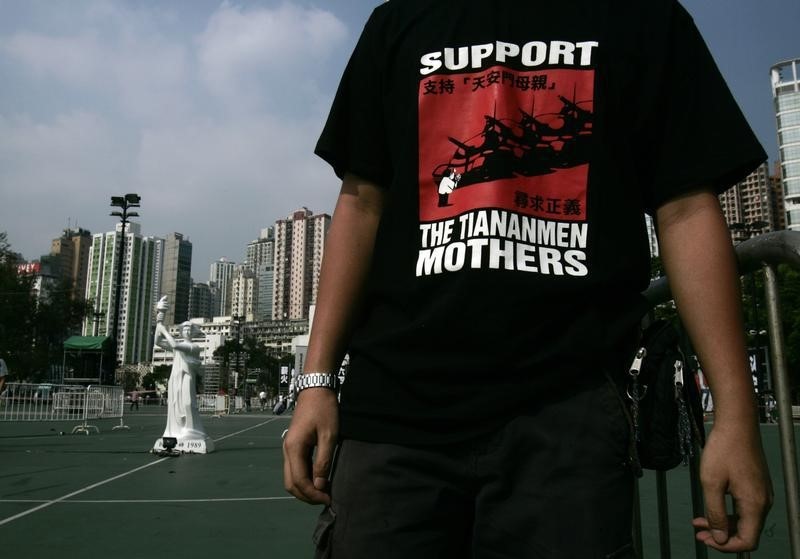BEIJING (Reuters) - A group of families demanding justice for victims of China's 1989 Tiananmen Square crackdown declared that the government must bear responsibility for "historical crimes" in the same way it has called on Japan to do so for its wartime past.
The Tiananmen Mothers activist group has long urged the leadership to open a dialogue and reassess the 1989 pro-democracy movement, violently suppressed on June 4 that year by the government which labelled it "counter-revolutionary".
In an open letter released on Monday through New York-based Human Rights in China, the group cited Premier Li Keqiang's remarks on Japan's failure to reflect on its past.
Sino-Japan relations have long been poisoned by what China sees as Japan's failure to atone for its occupation of parts of the country before and during the war.
Li said in March that "the leaders of a state not only inherit their predecessors' successes, but should also bear historical responsibility for their predecessors' crimes".
"By the same logic, shouldn't today's Chinese leaders bear responsibility for the series of crimes - manmade famine and slaughter - perpetrated in their own country by China's leaders at the time: Mao Zedong and Deng Xiaoping?" the group said.
It asked when China would commemorate the deaths of people during a 1958-1961 famine, the 1966-1976 Cultural Revolution and the Tiananmen crackdown, saying leaders "cannot impose a forced amnesia".
Foreign Ministry spokeswoman Hua Chunying said China had long ago reached a "clear conclusion about the political turmoil of the 1980s".
"The more than 30 years of the great achievements brought about by China's reform and opening up have proven that the path of development that China has chosen is completely right," she told a daily news briefing.
One of the more prominent members of the Tiananmen Mothers group, Zhang Xianling, said they were also inspired by President Xi Jinping's remarks last month to Japanese officials that "the crime of aggression committed by Japanese militarism cannot be concealed".
"So we think that the crime of murder is also not easy to cover up," Zhang, 77, told Reuters by telephone. "Your killing of people in China was even more brutal than what happened during the war."
After initially tolerating the student-led demonstrations in the spring of 1989, the Communist Party sent troops to crush the protests on the night of June 3-4, killing hundreds.
The topic remains taboo in China and the leadership has rejected all calls to overturn its assessment of events.

(This story has been refiled to add quote marks in headline and lead paragraph)